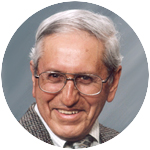Father’s Day usually comes and goes without much fanfare, a holiday much lower in esteem than Mother’s Day. Perhaps it is because memories of our fathers stir conflicting emotions, scratch the scabs of unhealed hurts, mull over misunderstandings and resentments.
It does not seem to deserve a celebration but, rather, a meditation or self-directed solitary retreat. At minimum, its goal would be reconciliation or at least letting go; at maximum, it would be a new appreciation of what our fathers, grandfathers and long-dead ancestors contributed to our lives.
I grew up on a poor farm in the foothills of the Pecos wilderness in northern New Mexico. By age 5, I was herding goats. If I became distracted and the goats got into the cornfield, I got a whipping. I chopped wood, milked the goats, drew water with a bucket from a hand-dug well.
[hotblock]
We were a family of seven children, destined to become 10, and my father, I now realize, was under great pressure to put enough food on the table in the midst of the Great Depression.
He worked us extremely hard. By age 9, I, the eldest, was helping him cut Ponderosa pines for use as props in mine tunnels. I pulled one end of a two-man crosscut saw and he pulled the other. One day, we cut 100 trees in half a day. I was so tired, I thought I would collapse on the walk home. Another time, the saw nicked my thigh and I was afraid to tell him until my shoe filled with blood.
The farm, however, did not produce enough for us to survive and sometimes Dad had to go for months to Wyoming to work as a track laborer. I was always glad to see him go because he was so strict. If he did not think we were doing our best in school, he would take us out for a few days and work us to exhaustion.
Then he would say, “This is what you will have to do if you do not learn.” We studied every night by the light of a kerosene lamp, Dad alongside us at the kitchen table. Our parents were equally demanding about our learning and living our faith.
My attitude toward my father began to change when I was 11. My teacher had informed my parents that if I went to summer school in Las Vegas, I could skip one grade. One day when we were once again cutting Ponderosas, he told me that he and Mom wanted me to go.
It opened a new world for me. Because typewriters fascinated me, Mom bought me a toy typewriter that actually worked. Two years later, they bought me a bicycle, fulfilling my fondest dream.
As my seven brothers, two sisters and I grew up, we saw a welcome evolution in our father, from a person to fear to a man we could understand and admire. We saw that everything he and Mom undertook was for our benefit.
He had only a fifth-grade education; Mom had graduated from the eighth grade. They saw education as our way out of poverty and sacrificed everything for it. Their dream come true; nine of their 10 children graduated from college, half with advanced degrees.
My father learned too, and with the help of one of my brothers started a landscaping business, became interested in the Bible and loved to debate the Jehovah’s Witnesses who came to our door. He welcomed them with two Bibles, one in English, the other in Spanish.



Share this story